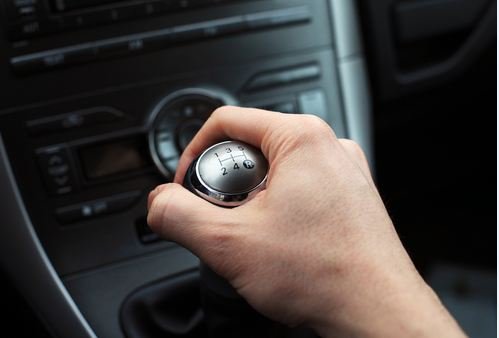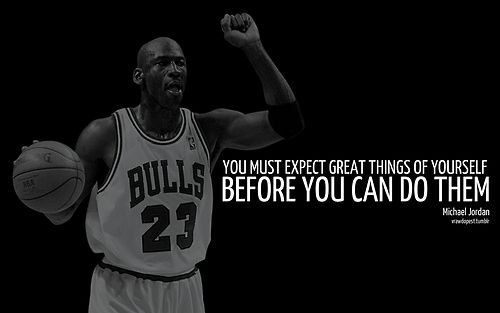How To Get In The Zone, IN EVERYTHING

Measuring productivity by the hour is not the most rational decision.
In today's topic, in connection with the recent post, "How To Be 10X Productive", I would like to share with you how you can attack a task at hand with intense concentration.
Before we dive in, please don't even bother to give yourself a pretext of not trying because you have ADHD. At some point in our lives, we all have to deal with our idiosyncrasies. As some of you know, I'm also diagnosed with attention deficit disorder. It was painful, but I had to figure out so that I get some work done. Or else I would have amounted to nothing. Just a waster. All it requires is certain time block of the day that we manage to stay in the zone.
Like I said, no one is getting out this one. Lack of concentration is a bug. It's fixable no matter how your mind is jumping around everywhere like a trapped monkey in a cage. I've tamed it, so can you. Time to debug ourselves.
In my previous post, I suggest 2~3 missions to accomplish in a day. Although any task can be broken down into a 30 minute bites, I'll be illustrating based on a mission that requires a good chunk of 2~5 hours of focus.
Let's get our hands dirty.
1. Get rid of distraction (importance of workspace and tools)
You probably have a favorite place to work. Choose it wisely. Make sure you have the least amount of distraction, if not, any. It has to be YOUR place where no one disturbs you. Protect it at all cost.
Personally I'm most productive when I work at a cafe. It's noisy but much better than quiet office. I feel trapped in silent areas with if there is no sign of motion around me. When the real work has to be done, I never go to office to work. But it doesn't mean I can tolerate all ongoing conversation around me. I make sure to bring my noise cancelling headphone and isolate myself from the rest of the world. I usually go to The Coffee Bean, which is within the distance of eight minutes of walk from my house. It's a place where work is done, where all the miracles take place.

I only listen to theme song or sound track so I don't catch myself entangled in lyrics. I listen to seamless loop versions that last three hours or longer. You can easily find those on youtube or if not right click on your player so that you can make it play indefinitely. My all time favorites are 300 Violin Orchestra (Jorge Quintero), Intro (the xx), the Wave (Randy Edelman). I love the movie "angels in the outfield" and "the Wave" brings me my childhood memories. Somehow it adjusts my radio frequency in my brain to put me in a seamless flow.

One more thing that you are going to utilize. Have your google timer ready. You want to time yourself. I cannot specifically tell you how long you should set your time. Because everyone's attention span is different. Some people set time so that they push themselves to finish a task within that duration, which can be 3 hours; this is applicable to tasks that are repeatedly done on a regular basis, so you have a good idea of how long it takes for completion. For my case, I usually set 10 minutes (told you so, I have ridiculously short attention span). I need to constantly push myself with back-to-back 10 minute drills to get into the zone but after 3~4 time (hence, 30~40 minutes) I'm in. Now, four hours just pass with a blink of an eye.

I wasn't able to do it right away but like everything in life, after numerous practices and repetition, you create the magic power. For most people, you'll probably learn to tap into the zone much quicker than I have, as long as you make a routine out of pushing yourself to concentrate .
2. Have your procedures ready
You must have a straightened out action plan. Completely broken down, so it's like reading a manual. Not much of thinking to be incorporated once you are working on your mission with intensity. I usually do this before I arrive at the workplace. Because even planning exhausts you as well. It's best to jump into the mission immediately. Sometimes it may take more than 30 minutes to brainstorm if it's not something done on a regular basis. Not only planning require extra battery to focus, you are constantly tapping into that strategizing part of your brain, and this can end up playing as a serious distraction. That's why most athletes have coaches who do the planning for them so they can focus on execution part. The power of focus is at its pinnacle when your brain doesn't have to think to deliver. You have to instinctively know what to do without much thinking.
So how do you come up with an action plan?
It has to be specific enough that you know how many steps are there and what ought to be tackled, respectively. For example, if your mission was to write a blog post, coming up with table of contents is indeed making an action plan. Let me illustrate this briefly. 5 hours ago, I wanted to write the very post that I'm currently sharing with you. So, as I always do, I made an action plan.
i) I, first brainstorm.
ii) Choose three key elements to explore in a deep level.
iii) Additional ideas.
This is usually very automatic. Once you know 2~3 most important things that you want to touch on, your brain just generates extra things to talk about.
iv) Arrange key elements and complementary ideas in orders.
Voila, there you have it, the action plan.
But don't go too far so that you get burned out while you are doing it. You don't want to create resistance towards the habit of creating an action plan. You are doing it so that you can really focus on the task at hand.
3. Warm-up

Alright, sometimes you are ready to jump into your mission immediately but a quick warm up is necessary. A warm up can be a scaffold or routine such as reading a paperback book that aids you to turn on your switch. I personally have the same simple scaffold—structure that ensure you to approach the task the same way every time. I usually review the pre-written procedure and close my eyes and start explaining in my head as if I'm delivering an oral presentation. I always keep it under 15 minutes. I suggest you do the same. After the warm up, the real game begins: zoom in.
4. Do not deviate from your task!
3...2...1. Now you are in the game. Follow the procedure and stick with it as if it's your only way of getting things done. If you are like me, there are going to be hundred things that pop into your head that is really tempting to explore. I'm not talking about your facebook and emails. I'm assuming that you've already managed to shut those things down (If you haven't make sure to switch your phone, email box, real time messaging tool including slack off).
Things that allure you in a convincing fashion are the ones that are deemed important and you might really need to leverage it for later use. As I write this, I just remember a material that I was planning to use for tomorrow's meeting with my client. It's vital part of my presentation. I forgot to give it to my secretary and have it placed under my binder. And there's a great chance I'll go without it tomorrow if I don't pack it in right now. BUT.. my response to this urge is.. so be it. I'm very firm about it. If I do forget, let it be. What I do at the moment is the most important thing. Again, l suggest you do the same. You have to make a decision to commit on the task at hand and rule out everything else. Protect it with your life. Unless you left your stove running for hours and it's very likely that your house would burn into ashes, don't you dare to dabble on other "important stuffs"
5. Switching gears

This part is tricky to explain. Because it comes as you practice and is very different by individuals.
When you are working on your mission with full attention, the best scenario is to complete while the magic is in you and your concentration energy is yet be depleted. But sometimes it will run out after two hours of intense immersion. You went hard for two hours but now you are done. You have two choices here. You pull out and rest or find a way to keep on going by temporarily lowering the intensity. The latter is what I call switching gears. It's a crucial step where you kind of cheat to bring yourself into the zone again. And I usually push myself to choose the latter because resting usually breaks a rhythm and I really value the notion of completion, "finish no matter what"
One of the skills that Kobe Bryant credits to Michael Jordan for his successful basketball career is the ability to rest by mixing up post plays in a game. We have to apply a similar principle. Learn how to gain it back once your focus level almost drops to 0. For me, I switch my song that's been playing for hours to something more lovely and calming. It helps me steam off. Usually it's "I need you" by Vonda Shepard from the movie "Love & Other Drugs".

Again, using the example of writing a blog post, I would look at what I have laid out in my procedure. Either I mix the orders or try to simplify or combine some of the steps into one. Then, I ask one question, "if you have to finish in 20 minutes, what would you write about?" It helps me to get rid of topics that are not so vital. When it comes to writing, you get burned out in the mid way because you are overwhelmed with all the ideas that you want to touch on. The best practice is to shut the noise and pressure that you've created and simplify to one core idea or thing that you want engage in.
6. Active resting.
Now, you've managed to pull it through and you have finished your mission! Once you are done with one of your 2~3 missions that you were trying to accomplish, before moving on to the next one, make sure to actively rest. I cannot stress how important this part is. It's scientifically proven that playing with your phone or consuming content from TV is NOT the way to rest. Whether or not you are consuming for entertainment purpose, you are bombarding yourself with loads of information. Your brain is still engaged. Come one, let the brain rest! Such consumption sucks you dry out. You want to shut it down. Take a long walk instead. If your workplace is not too far away from your house, taking a 15 minutes of nap followed by cold shower is the very best practice of active resting in my opinion. Eat something light and clean such as nuts before you jump into the next mission. The whole process shouldn't take more than an hour. Otherwise, you'll be tempted to pad yourself on the back that you've already accomplished something and give yourself a permission to slack off for the day.
7. Power of review
Although the work is done. Give yourself 10 minutes to assess how you've manage to complete a task with full focus. See things where you can work on and improve to get that extra edge when it comes to focus. Write it down in your journal and incorporate it in your next mission you are about to embark. Treating every mission, as experiment to focus EVEN MORE, not only boost your productivity but you'll be able to deliver better result in terms of quality. Then, it become exponentially fun! Plus, you need that warm-up process before you jump into the next mission anyways :)
Final Words
I cannot stress how you can get so much done with better quality once you tap into your zone. You just become invincible. Again, as you treat every mission as experiment to improve on concentration, it becomes your second nature. It's not like what is often heard in sports games where a player delivers an outstanding performance because he or she is on fire today. You practice it everyday and tap into it every time your are working on your craft. Like the world renowned professional athlete trainer Tim Grover who coached Michael Jordan and Kobe Bryant said, there is no particular zone-in moments or days for people like MJ. You are ALWAYS in the zone.
Tap into it and produce remarkable things you ought to offer to this world. You are far greater than you think.

I found this to be an inspirational post, keep up the good work 👏🌝
thank you it means a lot.